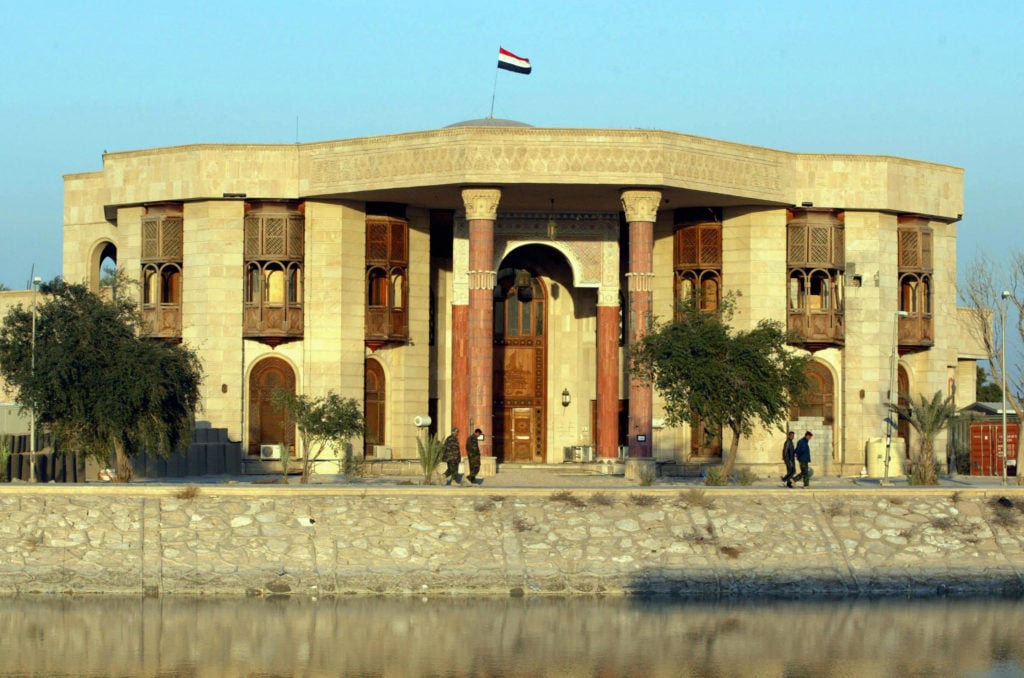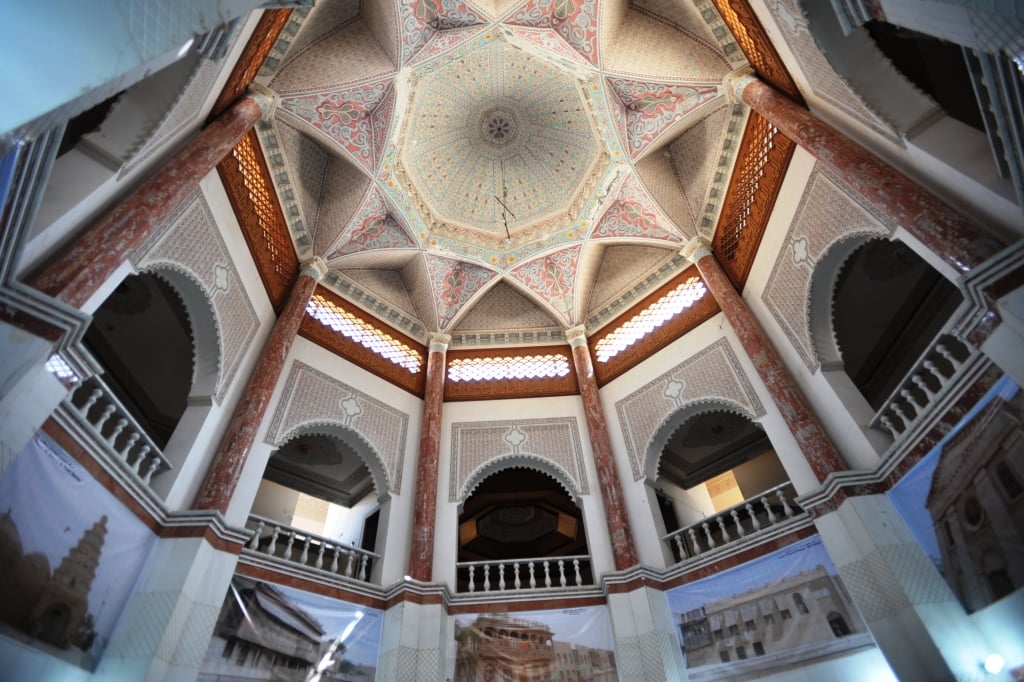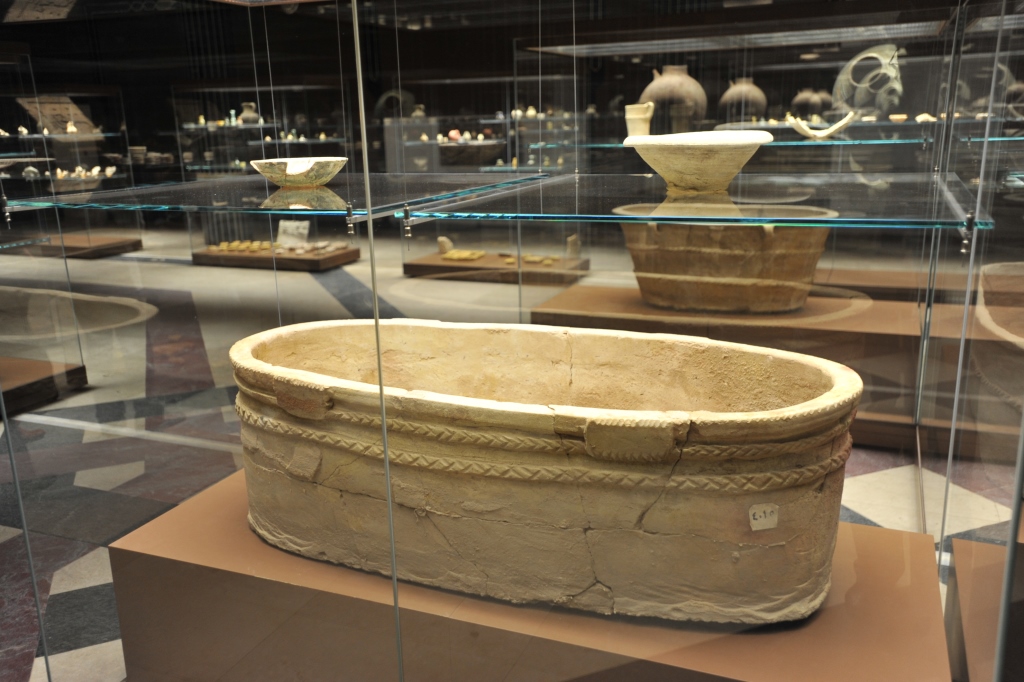Art World
Saddam Hussein’s Former Palace Reopens as Long-Awaited Antiquities Museum
The world's newest museum has an unusual history.

The world's newest museum has an unusual history.

Sarah Cascone

The world’s newest museum has an unusual history. Saddam Hussein’s former palace in Basra now showcases a collection of antiquities dating back to 400 BC, the Associated Press reports.
Following the American-led invasion of Iraq in 2003, the palace was temporarily used as a British Army mess hall. Since then, Qahtan al-Obaid, the director of the Basra Museum, had been attempting to win over the central government. He finally got his way in 2010. Six years later, the museum is opening its doors.
The director told the AP that he hoped the choice of location would help “replace the themes of dictatorship and tyranny with civilization and humanity.”

The new Basra Museum. Courtesy of the United Nations Assistance Mission for Iraq PIO.
In an email to artnet News, Gyorgy Busztin, the deputy special representative of the United Nations Secretary-General for Iraq said that “the opening of the museum highlights the importance of the conservation of the cultural heritage in a fast growing city like Basra, and the need to create a necessary balance between the past, present and future.”
The Art Newspaper reports that the lead-up to the September 27 opening was hectic, with much of the collection remaining in Baghdad up to a week before launch. Only one hall was opened, due to a shortage of funds, at an estimated cost of $750,000.

Artifacts at the new Basra Museum. Courtesy of the United Nations Assistance Mission for Iraq PIO.
The first section covers Basra history from 300 BC to the 19th century. The institution hopes to unveil three additional sections, on Sumer, Babylon, and Assyria, over the coming years. The museum is projecting £450,000 ($585,000) in additional costs.
The project was originally allotted $3 million by the government, but funds never materialized. The UK’s Friends of Basrah Museum charity has raised much of the money for the project, reportedly in part from oil company BP. The museum is also aided by the British Museum, which has been providing curatorial support since 2008.
https://www.instagram.com/p/BK3Vs2ugSgI
Basra has high hopes for the institution, despite the turmoil in the country. The city’s former museum was looted during the 1991 Gulf War and damaged again in 2003. Unrest continued as former director Mudhar Abd Alhay was shot and killed in 2005.
al-Obaid told TAN that the area is now relatively safe, and that ISIS is not a factor in the region. However, extra security measures include steel doors and window reinforcements.
“In recent times, the rich cultural heritage of Iraq has suffered greatly,” Busztin admitted. “But today, we are here to celebrate and to acknowledge the courage and efforts of the Iraqis and the international cultural community, united to protect and enhance this unique heritage.”